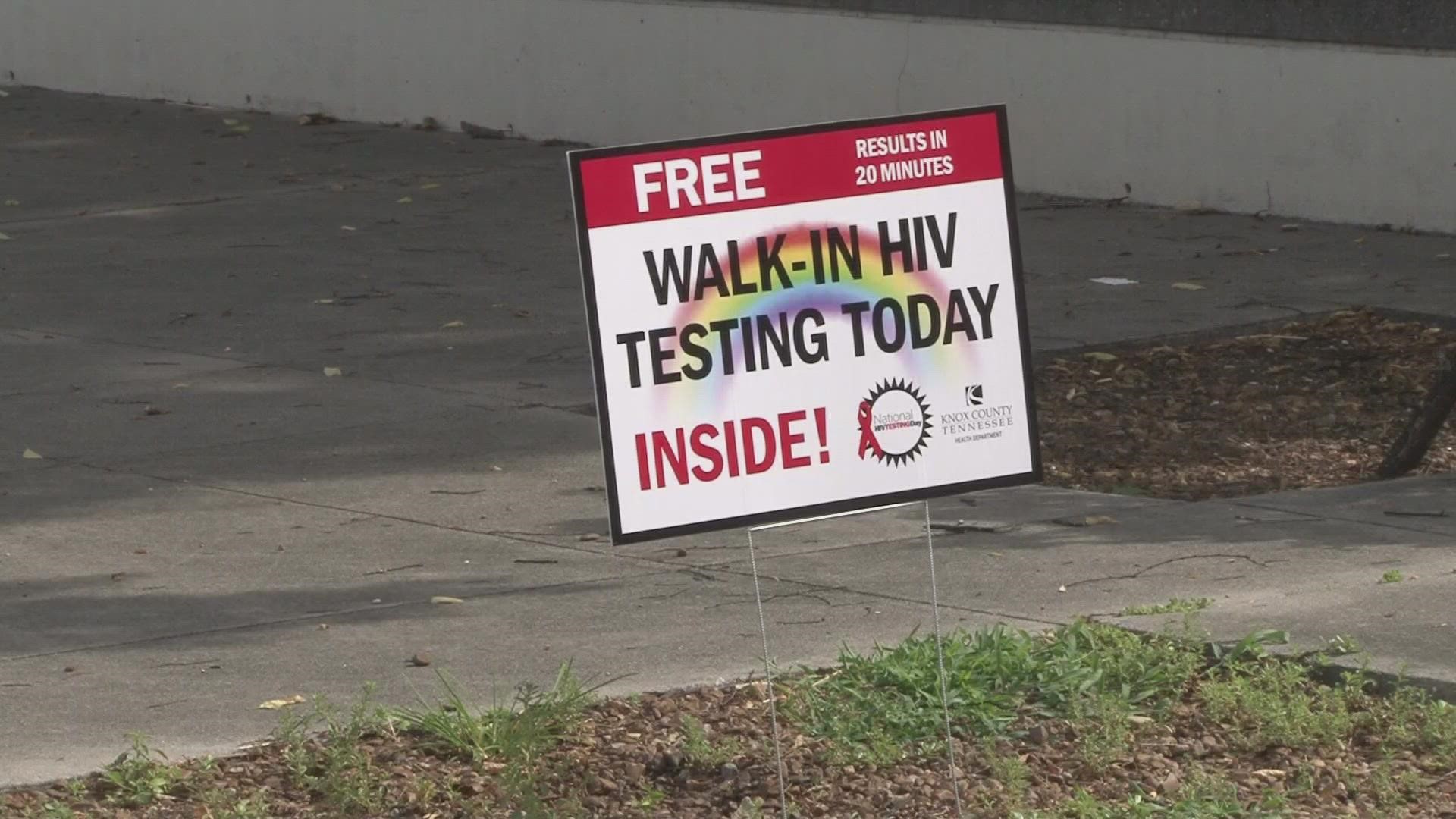NASHVILLE, Tenn. — On Jan. 17, the Tennessee Department of Health sent a letter to programs and organizations that receive grants from the state telling them that the state would stop taking federal funding to help pay for HIV surveillance, testing and prevention.
The letter said that the state would stop taking a grant through the Centers for Disease Control and Prevention that provided federal funds so organizations across Tennessee could provide HIV-related services.
"These arrangements were made under prior administrations, and this administration is examing areas where it can decrease its reliance on federal funding and assume increased independence," the letter said. "The State has determined it is in the best interest of Tennesseans for the State to assume direct financial and managerial responsibility for these services."
They said the federal grant contracts that provided those funds would end of May 31, 2023. They said other state-funded initiatives to support HIV prevention and surveillance will be funded through the state's metro health departments, starting June 1, 2023.
"It's a slap in the face to all the progress that's been made over the last few decades," said Alec Lambert-Cunningham, a nurse. "Rejecting this funding is only going to have negative consequences and it is going to affect a very marginalized community in Tennesse, and it's very sad to see."
Those health departments are largely inaccessible to people in rural areas of the state. They are mostly located in the state's major cities — Knoxville, Chattanooga, Nashville, Memphis and Jackson.
Information about how much funding those health departments could receive was not immediately available.
"We also ask for your patience in this process and for your cooperation as we seek to build on previous work with a different funding model for the HIV Prevention program," the letter said.
HIV prevention usually includes taking either PrEP or PEP medications. The first is used to prevent exposure to HIV through sexual contact or injection drug use, and the second can be used after a high-risk exposure to infection.
According to the Centers for Disease Control and Prevention, HIV affects some groups severely and disproportionately. Infection rates among Black communities are around eight times higher than infection rates among white communities.
They also said that "longstanding social and economic factors — including transphobia, stigma, systemic racism, experiencing homelessness or unemployment, and others—have put transgender women at high risk for HIV and made it more difficult for them to access services."
According to CDC data, diagnoses of HIV have risen in Tennessee compared to 2020 and 2019 with 831 cases reported in 2021. Kentucky reported under 400 cases that same year, and Virginia reported 792 cases.
"As a part of the gay community, I do feel it's very important to make sure you are keeping yourself safe and protecting yourself from those things," said Charles Xavius Broomes, who uses HIV prevention medication. "You know, HIV doesn't just affect gay people, and neither do STDs."
Samaritan Ministries at Central Baptist Bearden said they hope to be able to continue offering HIV-related services. However, they said larger organizations that depend on those federal funds may not be able to continue providing their usual services.
"Typically, the Tennessee Department of Health receives federal money and passes that onto agencies, like Samaritan Ministry, and others to do what we call 'HIV Prevention' in the community," said Wayne Smith, who works with the ministry. "We do receive free HIV test kits and free Hepatitis test kits, which are not cheap, and we use those to do work in the community. So, that is in jeopardy, I think."
On Friday, Senator Jeff Yarbo (D - Nashville) announced that he and Representative John Clemmons (D - Nashville) introduced legislation to continue funding HIV prevention, testing and treatment options.
Without that treatment, HIV usually turns into AIDS. It severely damages a person's immune system, making them significantly more likely to develop fatal diseases.

